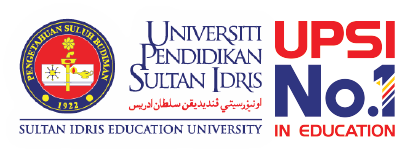Publication Ethics and Policy
Publication Ethics and Policy
The Journal of Research, Policy & Practice of Teachers & Teacher Education (JRPPTTE) follows the editorial guidelines recommended by the Committee of Publication Ethics (COPE). Papers will be accepted or rejected based on importance in the field, originality, and clarity of writing. In addition, the alignment with the stated scope and remit of the journal will be evaluated.
The Journal of Research, Policy & Practice of Teachers & Teacher Education is double-blind peer-reviewed. The editorial processes follow standard procedures:
Call for submissions
Article submissions and acknowledgements
Initial evaluation
Allocation of reviewers based on article content
Reviewing process
Author re-submissions if necessary
Further editing and processing
Evaluation for publication
Code of Conduct for Authors
- Authors must follow the guidelines (template) of an article that has been set as [https://ejournal.upsi.edu.my/index.php/JRPPTTE/Author-Guideline].
- The submitted manuscript must be unpublished, and not under consideration for publication elsewhere.
- Plagiarism checks will be carried out by JRPPTTE, but authors are expected to ensure that originality and proper citation are followed.
- Excerpts from other copyrighted works included in manuscripts are the responsibility of the author.
- Copyright transfer form must be completed,
- The identity of reviewers will not be disclosed to the authors,
- The copyedited manuscript’s format should not be changed.
- Authors are given 1-2 weeks to respond to comments and revise their submissions.
Code of Conduct for Reviewers
Submitted manuscripts are first read by the Chief Editor. Once the manuscript has been assessed for suitability by the editor, it will then be double-blind peer-reviewed by independent, anonymous expert reviewers, typically by two reviewers, but sometimes more if special advice is needed (for example on statistics or a particular technique). The reviewers will make their decision regarding the manuscript based on the following possibilities:
Accept, with or without editorial revisions
Revision to manuscript before a final decision is reached
Resubmit for another round of review
Reject, and resubmit elsewhere
For more information, refer to [https://publicationethics.org/files/u7140/Peer%20review%20guidelines.pdf].
Code of Conduct for Editors
Editors are entrusted with the responsibility for all content featured in their journals and should diligently strive to accommodate the readers and authors. Editors should consistently enhance the journal’s quality and ensure the processes of publishing the journal have been done delicately. Editors must support the freedom of expression and be committed in upholding the integrity of academic records. Business needs should be precluded from compromising intellectual and ethical standards and editors should always be willing to publish corrections, clarifications, retractions, and apologies when necessary.
For more information, refer to [https://publicationethics.org/files/Code%20of%20Conduct.pdf].
Code of Conduct for Publishers
For more information, refer to [https://publicationethics.org/core-practices]




